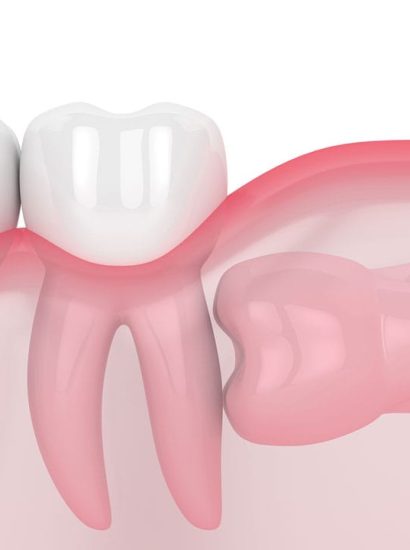When cold and flu season hits, most people stock up on cough drops to soothe sore throats and calm persistent coughing. But if you have a Flexible Spending Account (FSA) or Health Savings Account (HSA), you might wonder — can I use my FSA funds to buy cough drops?
The answer isn’t always straightforward. While FSA and HSA funds cover many medical and health-related expenses, not every over-the-counter (OTC) product qualifies automatically. In this guide, we’ll explain what makes cough drops eligible or ineligible, how to use your FSA or HSA for them, and what other cold and flu products you can purchase with pre-tax dollars.
Understanding FSA and HSA Accounts
Before diving into cough drop eligibility, it’s important to understand what FSA and HSA accounts are.
A Flexible Spending Account (FSA) is a special savings account that allows you to set aside pre-tax money for qualified medical expenses. It’s usually provided through your employer, and the funds typically must be used within the same year.
A Health Savings Account (HSA) is similar but is available to individuals with high-deductible health plans (HDHPs). Unlike FSAs, HSA funds roll over year after year and remain yours even if you change jobs.
Both accounts help you save money by using pre-tax income to pay for healthcare-related items — but the key is ensuring the expense is considered “eligible” under IRS rules.
What Does “FSA Eligible” Mean?
The term “FSA eligible” refers to any medical product or service approved by the IRS as a qualified medical expense. These include items used for diagnosing, treating, or preventing a specific medical condition.
Examples include prescription medications, doctor visits, medical equipment, and some over-the-counter treatments. However, products that serve mainly for comfort, general wellness, or cosmetic purposes are not eligible unless prescribed by a doctor.
Whether cough drops qualify depends on how they are categorized — as medical treatment for a cough or as a general wellness item.
So, Are Cough Drops FSA Eligible?
The short answer is: sometimes.
Cough drops may be FSA eligible if they are used to treat or alleviate a medical condition, such as a sore throat or persistent cough, especially when accompanied by cold or flu symptoms. Many cough drops and throat lozenges qualify because they are considered over-the-counter medications used for treatment purposes.
However, to ensure eligibility, they must meet specific criteria. Most drugstores label eligible products as “FSA/HSA approved,” and many online retailers have filters that let you view FSA-eligible items directly.
If you’re uncertain, you can always check your FSA provider’s list of approved medical expenses or consult your FSA administrator for confirmation.
When Cough Drops May Not Be Eligible
Not all cough drops automatically qualify. Some products are marketed as sugar-based candies or vitamin-infused lozenges designed for general wellness rather than medical relief.
For example, throat lozenges that contain only herbal extracts, vitamins, or flavoring but no active medicinal ingredients may not be eligible. The IRS rules specify that only items used primarily for treating or alleviating illness are considered medical expenses.
If a product’s main purpose is comfort or prevention without treating a specific symptom, it likely won’t qualify for FSA reimbursement.
How to Use Your FSA or HSA to Buy Cough Drops
If your cough drops are eligible, using your FSA or HSA funds is simple. You have two main options:
- Pay with an FSA or HSA debit card: Many eligible products can be purchased directly using your FSA card at pharmacies or online retailers that support FSA payments.
- Request reimbursement: If you pay out-of-pocket, you can submit a reimbursement claim with your receipt and product details. Be sure to keep records in case proof of medical necessity is requested.
Always save your purchase receipts, especially if the product name isn’t clearly marked as FSA eligible.
Ingredients That Help Determine Eligibility
One way to know if a cough drop qualifies is by checking its active ingredients. Medicinal ingredients that treat sore throats or suppress coughs usually make a product eligible.
Common active ingredients include:
- Menthol: Relieves throat irritation and suppresses cough.
- Eucalyptus oil: Helps open nasal passages and ease congestion.
- Benzocaine: Acts as a local anesthetic to numb sore throats.
If your cough drops list one or more of these ingredients, they’re likely considered medicated lozenges, making them FSA eligible. Products that list only sugar, honey, or herbal extracts might not qualify.
Other Cold and Flu Items That Are FSA Eligible
Even if your cough drops aren’t covered, many related cold and flu treatments are FSA eligible. These include:
- Over-the-counter cold and cough medicines
- Throat sprays and medicated lozenges
- Thermometers and humidifiers
- Nasal sprays and saline solutions
- Pain relievers like acetaminophen or ibuprofen
- Chest rubs and vapor inhalers
You can use your FSA or HSA card to buy these items at most major pharmacies, supermarkets, and online retailers such as Amazon, CVS, and Walgreens.
Buying Cough Drops Online with FSA or HSA
Shopping online makes it easy to find eligible items. Many retailers now categorize products specifically for FSA and HSA use.
Amazon, for example, has a dedicated “FSA and HSA store” where you can filter by eligibility. Simply search for “cough drops” or “throat lozenges” within that section, and eligible items will be clearly marked.
Retailers like Walmart, CVS, Walgreens, and Target also display FSA/HSA badges on qualifying items. You can use your FSA card at checkout or submit receipts later for reimbursement.
Always verify the product description before purchasing, as not every brand or variety will meet FSA criteria.
Prescription Requirements and Medical Necessity
In the past, some over-the-counter medications required a doctor’s prescription to qualify for FSA reimbursement. However, under the CARES Act of 2020, this rule changed.
Now, most over-the-counter medications, including cough drops and other cold remedies, no longer require a prescription to be eligible. This means you can buy them directly with your FSA or HSA card as long as they’re listed as eligible.
However, in rare cases where a product’s eligibility is unclear, your FSA administrator may ask for proof of medical necessity. Keeping documentation such as receipts or product labels can help you avoid reimbursement issues later.
Tips for Managing FSA Funds During Cold Season
If you rely on your FSA funds to cover healthcare costs, managing your spending wisely can help you get the most out of your benefits. Here are a few useful tips:
- Plan ahead for cold and flu season. Stock up on eligible products early, including cough drops, medicines, and tissues.
- Use online FSA stores. Retailers clearly label eligible items, saving you time and confusion.
- Track your expenses. Many FSA providers have apps or dashboards where you can monitor spending and upload receipts.
- Spend before the deadline. FSA funds usually expire at the end of the plan year, so use them before you lose them.
- Keep medical records. If a product’s eligibility is ever questioned, your receipts and ingredient details will serve as proof.
Managing your account effectively ensures you get the most value from your pre-tax savings.
Conclusion
So, are cough drops FSA eligible? The answer depends on the type of cough drop and its ingredients. Most medicated cough drops that treat sore throats or suppress coughs — especially those containing menthol, eucalyptus, or benzocaine — are eligible for FSA or HSA reimbursement.
However, products that serve as simple throat soothers or candies without medicinal properties typically do not qualify.
The good news is that with the expansion of FSA eligibility under the CARES Act, it’s easier than ever to use your pre-tax dollars for cold and flu relief. Just remember to check product labels, keep receipts, and use trusted retailers that clearly mark FSA-approved items.
By making informed choices, you can care for your health and maximize your savings — all while staying prepared for the next time a cough or sore throat strikes.
FAQs
1. Are all cough drops FSA eligible?
No. Only medicated cough drops with active ingredients that treat coughs or sore throats are typically eligible. Non-medicated or candy-like lozenges may not qualify.
2. Do I need a prescription to buy FSA-eligible cough drops?
No. Since the CARES Act of 2020, you can purchase most over-the-counter medications, including cough drops, without a prescription.
3. Can I use my HSA instead of FSA for cough drops?
Yes. HSAs and FSAs generally follow the same eligibility rules, so you can use either account to buy eligible cough drops.
4. How can I check if my cough drops are FSA eligible?
Look for labels that say “FSA eligible” or check the retailer’s FSA/HSA section online. You can also contact your plan administrator for clarification.
5. What other cold-related products can I buy with FSA funds?
You can use your FSA for over-the-counter cold and cough medications, nasal sprays, thermometers, pain relievers, and throat sprays, among others.
Also read: Top Monitor Speaker Stands for Perfect Audio Positioning | Best Studio Setup









